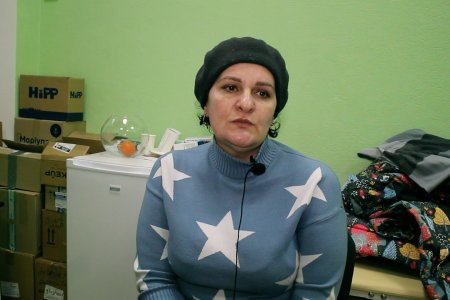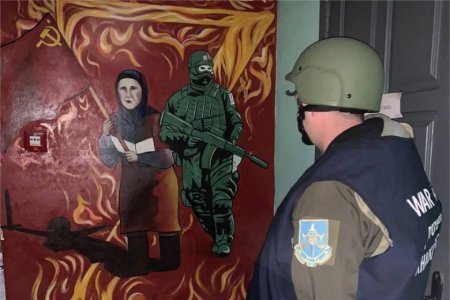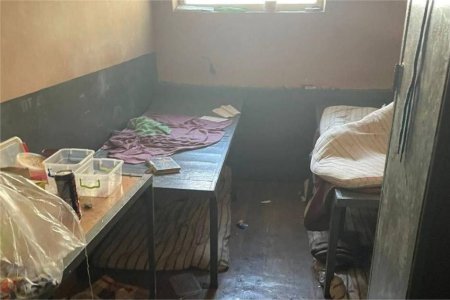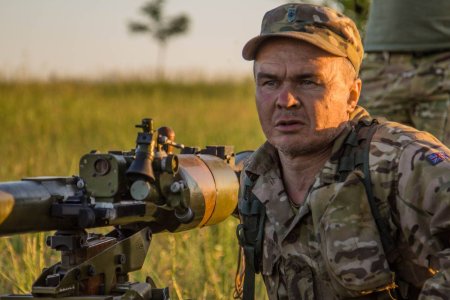No one among us expected this to happen
It was my husband’s birthday on 23 February; the table was set, and everything was as it should be. In the morning, we woke up and learned that they declared war. None of us believed it; we didn’t know what to do. At first, we thought it would drag on for a couple of weeks. We went to ATB, bought groceries in advance, thought we’d go somewhere during that time, and then come back. However, we returned home as there were three dogs, three cats, and a whole household. Therefore, we decided not to go anywhere and wait it out at home.
My brother lived in the north of Russia in Surgut. He warned us a few days earlier: “Valya, there will be war.” A friend’s daughter came from Moscow and also said: “Dad, you will have a war.” She packed her things three days before the start and returned to Moscow. But no one among us expected that this could happen. Then we thought it was some joke, and no one took it seriously.
On the first day of the invasion, the Russians drove in from Novotroitsk. They showed on television how their soldiers entered village councils; they were all closed, and not a single living soul was present. So they moved straight towards Kherson. We didn’t even see where they went. Something just exploded at the airport, like a barrel of fuel.
Russians settled in our village
Our house is located on the western outskirts of Kherson; nearby is the Chernobaevka airfield. Now, all that remains of the airfield is one wall and two letters. All those shootings written about on the Internet were over our heads.
The Russians settled in our village, arriving in the Urals, which can accommodate 20 soldiers. They walked the streets, checked every yard, and came to us. They came in and asked how many of us lived here, how we lived, what type of farm we had. They drove around the village in armored cars with machine guns and went to ATB and Epicenter to shop. Residents were given humanitarian aid. Three hundred people gathered in line to get it. But they gave it to us without a queue because we have three children.
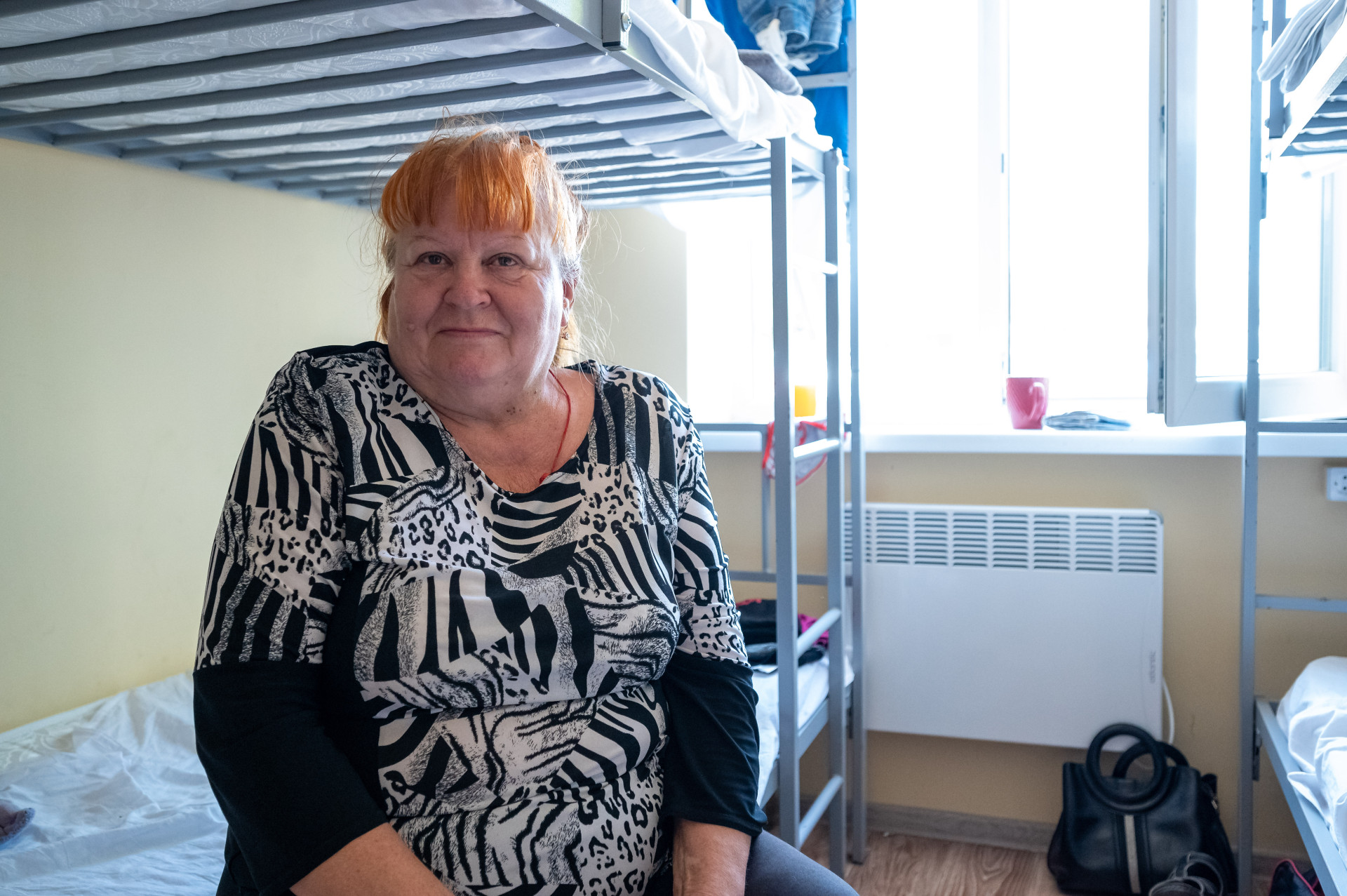
They forced them to hand over their companies if they discovered someone had money or their own business. We had a neighbor — a businessman named Yarosh. He had an enterprise; they did something with paper. His father said he refused to give them money, and they gouged out his eye. Fortunately, no one among our loved ones was injured.
During the occupation, the whole of Crimea brought food to our markets. You could buy whatever you wanted. Later, three supermarkets were opened. But we ran our farm, so we weren’t dependent on stores.
Russian television was working, but we were not fans of watching the news and did not go into the details of the events. Moreover, there was little trust. When the Antonivsky Bridge was blown up, they told us on the Internet that it was intact, but I saw two spans were gone.
November 11
In the fall, there was talk that Ukrainian troops were approaching from the Chornobaivka side. The people were afraid. They said they would start heavy shooting if they entered the city. Some didn’t even go to church out of fear. But when they entered, everything happened so quietly that no one even noticed. On 11 November, we left for the market. We returned from the village to the city, and soldiers were standing there — about 20-30 people. We didn’t even understand who they were. It turned out they were the Ukrainian Armed Forces.
Then others drove in from the Tavriiskyi microdistrict, the children clinging to their tanks. That day we went to the city center to see if it was true. We stopped by, and everyone was hugging each other. Ukrainian flags were flying near the “White House”; there was so much joy! A large crowd has gathered. People appeared from nowhere, but before, it seemed no one was there because everyone was hiding. There was great joy. That’s just what we were waiting for. Other places are good, but home is better.
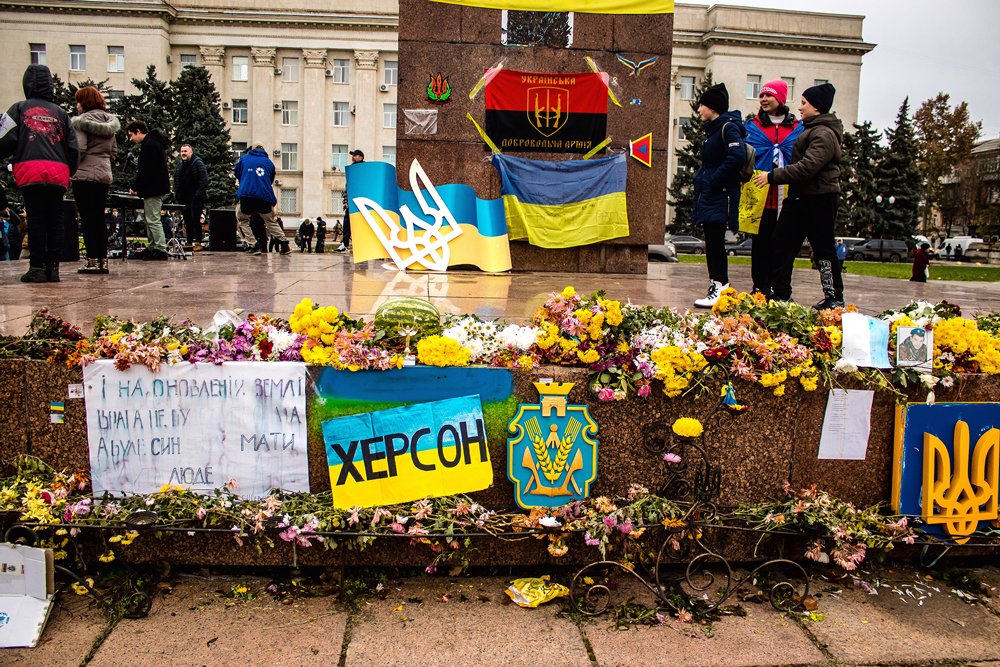
Detonation of the Kakhovska Hydroelectric Power Station
My husband woke at 6 am and said: “Did you hear that the dam was blown up?” We didn’t believe it. How could this be done? It stood for 70 years, and now it has been destroyed? It was a shock for us. We knew that our right bank was higher than the left. And so it happened: the water went mainly to the left bank. The locals did not understand what that explosion was or what happened. They probably thought they were being bombed, so they crawled into the basements out of fear. Many drowned there. The water reached our house, but it was not flooded. However, the water came right up to the roof at my neighbor’s place in the lowlands. It’s good that we were on top. Nearby, there was a tributary of the Ingulets, and it had dried up long ago, so everyone crossed it on foot. After the dam was blown up, a sea half a kilometer wide was formed there, and people sailed through it in a boat.
There is an oil refinery near us where diesel fuel is produced. To prevent the enemy from getting it, diesel fuel was lowered into the ground. When the flooding happened, it all went up. We still wash ourselves with diesel fuel, and the smell is unpleasant. We can’t drink the water. Poor animals drink all this because there is no other water. You give the chickens some good water, and that’s it because you need to save money. Water is being delivered, but there is not enough for everyone.
It’s scary at home now — shells fly, and where they will fall is unknown. We like it in Lviv. I want our people to walk around Kherson like this, to enjoy the streets and life. I want to come home and have a peaceful sky above my head.
